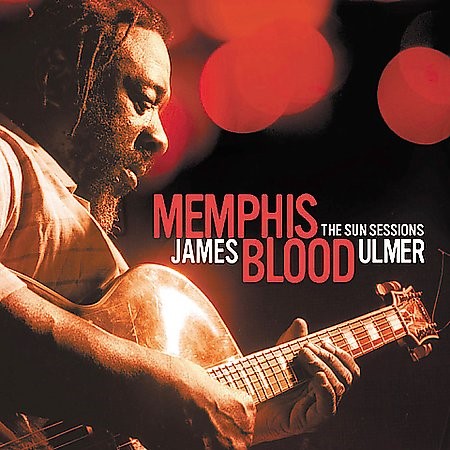Description
MEMPHIS BLOOD was nominated for the 2002 Grammy Award for Best Traditional Blues Album. Over three days in April 2001, James “Blood” Ulmer and producer/guitarist Vernon Reid (yes, of Living Colour fame) went into the legendary Sun Studios in Memphis and kicked out some of the greasiest, knottiest, most surreal blues music ever. The blues have always been part of Ulmer’s iconography, even when deeply entrenched in the harmolodic theory he helped to develop with Ornette Coleman. Over the years on his albums for DIW, Ulmer has with mixed results attempted to dig into the blues wholesale, but until now, with the aid of Vernon Reid and a cast of stellar if not well-known musicians, Blood hasn’t been able to indulge his obsession to the hilt. All 14 songs on Memphis Blood are covers, many of them blues classics from the canon, with a few from Ulmer’s own shrine book. The set opens with Willie Dixon‘s “Spoonful.” There’s a trace about 12 notes coming from the harmolodic E to the fore before Reid and Ulmer kick it in with harmonica player David Barnes, whose blowing in this album is so meaty, tough, and oily that he must have learned how to play in a Memphis rib joint. Also getting down into the pit of the blue-black mass is Ulmer’s running partner, violinist Charles Burnham, who puts a wah-wah on his axe in “Little Red Rooster.” Burnham reveals that there is more than swing to blues violin chops; he could have taught Sugarcane Harris or Papa John Creach plenty. Burnham’s sense of dynamic and timing is phenomenal, as he underlines each line of Ulmer’s lyric with a phrase that moans and snakes as the singer wails. On Otis Rush’s “Double Trouble,” Reid gets his turn to shine, and he does explosively, but in the vernacular. He doesn’t give us his standard thousand-note run, but instead blistering attacks on the minor-key side of the tune; he’s all edges and cutting, spitting notes and fury. As for Ulmer, he’s never sounded more at home in his role as singer and guitarist, funking it up just enough with those edgy chords and strangled, single-note runs. He allows Reid to run the musical proceedings and settles in to front the band. The music, as a result, is fiery, loose, and full of drunkenly spirited, explosive delight. It’s a careening, side-railed music that tells a story only insofar as these cats are all imagining their own stories while playing in this studio, which has housed every great they play tunes by. As tired as the blues genre is, Memphis Blood is a fresh injection of blues truth; this is Saturday night drink, dance, and sex music. This is the music to do stuff by that you’re gonna have to repent for on Sunday morning without pose, primp, or preen. If any man or woman doubts that this is the blues album of 2001, let her or him listen no further than John Lee Hooker‘s “Dimples,” and then shake ’em on down. Ulmer delivers here, big time. ~ Thom Jurek




